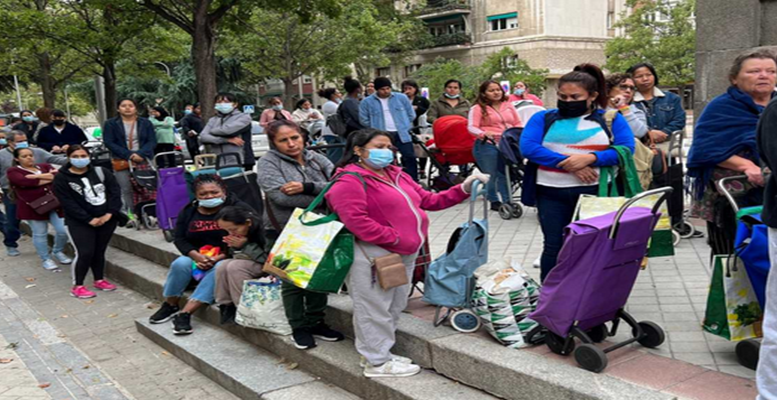The high percentage of the population at risk of poverty or social exclusion is a problem that Spain is unable to tackle. More than 25% of citizens are in this situation, i.e. one in four.
The report on the socio-economic and employment situation of the country by the Economic and Social Council (CES), presented on Thursday, warned of this issue. After highlighting the good progress of the economy, its president, Antón Costas, stressed that “this spring sunshine does not warm all households in Spain equally”.
According to him, the number of households in extreme poverty has increased and Spain is the EU country with the most child poverty, ahead of countries such as Romania, Hungary and others “manifestly less strong in economic terms”.
“I cannot understand how a decent society accepts this”, he added. For Costas, poverty is “a moral problem, almost a problem of decency”, because “you are preventing the development of 25% of the population of your country, you are denying them their life”.
Furthermore, he stressed that “this poverty has the capacity to affect the country’s economic efficiency”. In particular, child poverty represents “a waste of economic resources, as OECD studies say that the lack of investment in children subtracts more than 5 points from GDP”.
After recalling that Spain has one of the highest poverty rates in the EU and the OECD, he warned that “if we do not change this, we have a dangerous strangler on the path of economic and employment modernisation in the country”.





